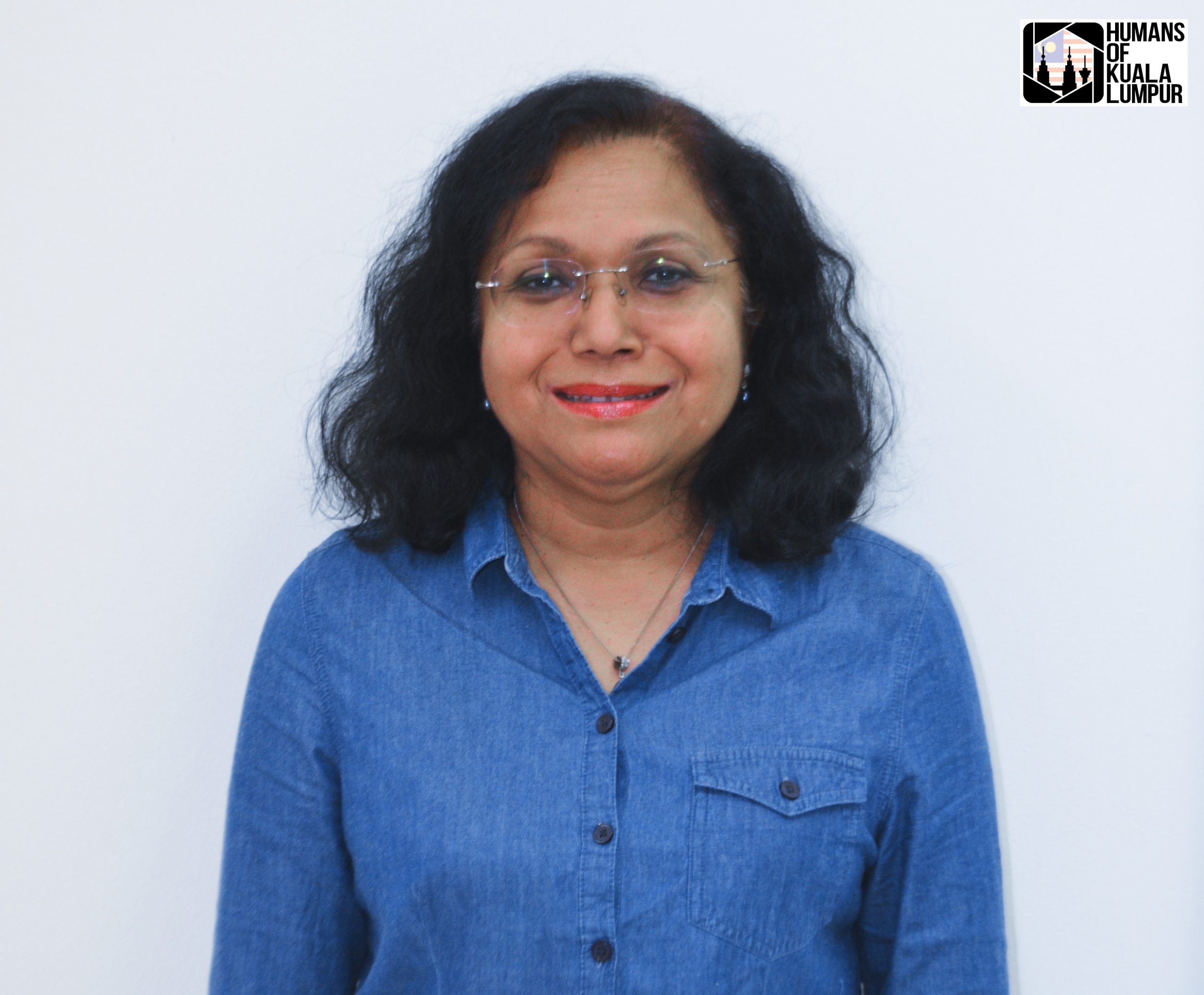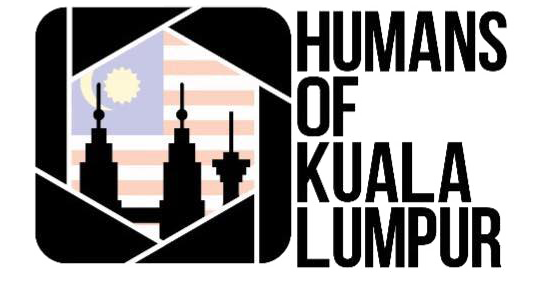“I have been a caregiver for my daughter since she was diagnosed with schizophrenia in August 2011. I’m involved with MMHA as a trainer, I do a lot of art therapy and other work with them. I’m a trainer in the Montessori curriculum and early intervention. Most of my team consists of young people, as I appreciate that they are very effective and are able to think outside of the box.
My daughter is a special needs child, her development was a little bit slower than the others. She decided she wanted to do something for herself, as her older siblings are very independent. Coincidentally at the time I had a project in Bangkok. I work with the Ministry of Social Welfare, and an NGO had asked me to train shelter workers on the Montessori way of learning for 3 weeks. My daughter encouraged me to go for it, as she would take this as an opportunity to try out being independent in the hopes of living in Singapore or Australia on her own. The day before I was leaving Bangkok, my daughter said that someone had changed everything in our house, and she was scared and paranoid. So she went to stay with my sister. When she came back, she didn’t allow my sister to come in because she said the place was in a mess and she needed to clean up before I returned the next day. But when I returned, the whole house is in a mess, all the glasses that we left were full of fungus, and footprints were everywhere. She was so feeble, she weighed only 26 kilograms. I observed her and realised she wasn’t focusing whenever I was talking to her. Her hygiene was very unkempt, hair, fingernails, everything. She would smile to herself, talk to herself, spaced out, walking around – I thought this was not right. I decided to take her to a doctor. Upon seeing her state, the doctor was worried that her organs might collapse. After getting all checked through, he said it was a miracle she was alive, that nothing had affected her. This was when she was diagnosed with schizophrenia.
My daughter used to be an outgoing person. In Bangkok, she used to drive the motorcycle, taxi, and take flights on her own. She used to do a lot of things independently. But now, she gets paranoid about everything. She doesn’t want to go out, doesn’t want to socialise, very introverted, wants to be by herself. When she’s not with the unreal world, she’s okay. But when she’s in her psychosis, she gets highly anxious about every little thing.
As a caregiver, you have to keep reminding them to be mindful of their hygiene and self-care. My solution for her is that if she’s coming out with me and I’m meeting people, she needs to be presentable. She would usually agree and get ready as she doesn’t like being left alone. Her logical thinking skills and self-care may be very low, but her higher-order thinking skills are very high. So I’m able to tell her situations about my business, ask her if she thinks we are on the right track, do we need see somebody about this, will they be helpful, what strategy should I do for this month. If you ask her, she will tell you. She will comment if we are going in the wrong direction, why is nothing happening, what if we try another method. I try to stimulate her intelligence in that way instead of looking at it from a negative perspective. We also do some banking work, meet people, have lunch, then we come back home. My daughter also helps out a bit with domestic chores, so she washes the plates, mops, and cleans.
Currently, my daughter is taking Clozapine mixed with Solian. The Clozapine medication has made her focus and have clearer thoughts. The voices, the hallucination, and the delusion is still there, but it contributes to her having a higher functionality.
What helps me to deal with my mental health is my work. When I give workshops and deliver talks, I get very highly-spirited. I feel very motivated when I’m able to make a difference, to help somebody, or to share my knowledge. Whenever I see changes in people and I see them happier, that adds to my motivation. I also do meditation, painting, and gardening – these are the little things that makes me happy.
What we as the public can do is understand the power of early intervention. The age between 0 to 6 are the crucial years. My daughter was badly treated during that time because she was a special needs student and teachers were unable to understand her. They would whack her, raise their voice, and shout at her. So now whenever someone yells at her, her expression would change. The core had already started from early childhood years.
This is why I do a lot of work in that area, and I also try to educate teachers and parents on the importance of helping kids through these crucial years especially. Montessori belief is that you instil positive thinking into them during the time before they turn 6. But in Malaysia, these are the pressure years. They want the child to make the grades. It becomes irrelevant if the child has a learning disability, or if the child is suffering from any kind of condition. When the child faces such challenges, they start bottling up their growing stress.
Mental illnesses are often described as “transparent”, something that the public is unable to see that someone is suffering from. So to a lot of people, they are misunderstood as lazy. For the people I train, I get very happy whenever they achieve something, even if it’s small. If you talk to them, you’ll realise that it takes a huge effort to even get out of bed and do something. It’s a huge milestone for them. Normal people like us are so blessed, but we don’t want to have the patience to understand. What we want is the goal, we don’t want to see the process.
I don’t want to look at my daughter’s illness as a curse or a burden, because I think God has given her as a gift to me. My daughter has been able to complete her Victoria Certificate of Education (VCE), where she took up Psychology, Business Studies, and other subjects. After that, she completed her foundation studies in Media and Communication. She also wrote a book. She studied Fashion and Design in Bangkok.
Because of my daughter, she has also helped me to be able to do what I do. With my passion for Montessori and early learning, I combine all these together and try to help people as much as possible. If you come to our education, it’s all about the child – not about the adults around them. If anything goes wrong with child, it has nothing to do with the child, but the environment and the people that has created them to become this way.
I feel that people get greedy, “oh the child can do this, let her do more – she’s getting better”. For an analogy, it’s like diabetes. If you have high sugar and you’re diabetic, you take medicine, right? When you take medication, it maintains. It doesn’t disappear, right? When your sugar level goes high, you have all the conditions of being diabetic. The same applies to mental illness. If they are getting better, it doesn’t mean that they snap out of it and that’s it. If stress or something comes back and triggers them, they will go through the cycle again. That’s what we need to understand.
I feel that if each one of us take the step to help those who are suffering, it will grow from a ripple in a pond to a wave. I have family members who come to me and say “just slap her out of it”, “she’s lazy”. Those people, I don’t know how to educate them because they don’t want to know. The older generation has a fixed pattern of thinking. If they cannot help, they should stay away. If they can help, then they can do something about it.”
Photostory by Maxy
Edited by Win Li



